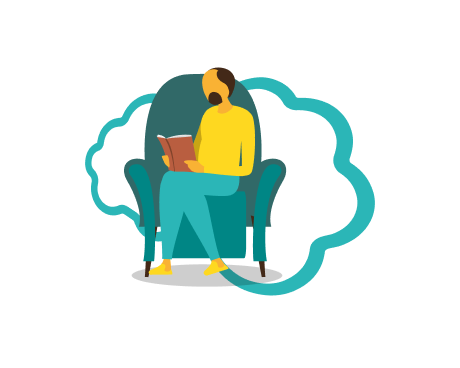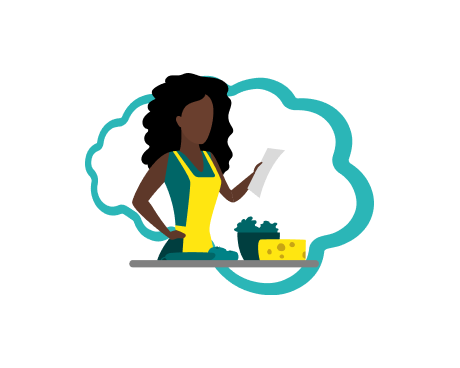Wellbeing Hub - Sweden
We know that times are particularly hard at the moment, whether it is worrying about our mental and physical health, new routines or worrying about our loved ones. It is natural that these changes and concerns could have an impact on our wellbeing. So now, more than ever, it is important that we look after ourselves and each other and this hub is designed to help you do that.
Simply follow the links under each wellbeing focus area to find out more and how to access resources.
Please note that is really important that you contact a medical professional if you require additional help & support.
Mental & Emotional Wellbeing is the way we think, the way we feel and how we deal with everyday stresses in life. It is really important to remember that good mental health doesn’t mean we feel happy all of the time. It is when we are finding things in life difficult to cope with that we may need to ask for help. Mental health issues can arise for ANYONE at ANYTIME and if you are struggling your first port of call should always be a medical professional.
Please click on the checklist below for more information:
Physical Wellbeing means our body is working at it’s physical best – this is different for all of us but we know that staying active, eating healthily and taking care of our body is critical to our overall wellness.
Please click on the checklist below for more information:
Related downloads
Sadly, we know that there has been an increase in wellbeing challenges throughout 2020 and 2021. There are many fantastic online resources that provide support and guidance to assist in dealing with these. We have identified some of the most common challenges and found some great guidance and advice from some of the top wellbeing charities and Heath providers to support you and your colleagues.
Please click on the below for information on the most common wellbeing challenges:
Mental wellbeing
The below links will take you to a list of charities and organisations that may provide an expert advice and guidance on a range of mental health challenges.
Government:
RSMH’s lokalföreningar - At RSMH's local associations, you can get more long-term support, by meeting other people with similar experiences of mental illness. Here you will find peer support, various forms of self-help courses and more. Contact your closest lokalförening here: https://rsmh.se/
Uppdrag psykiskhälsa
The purpose of this collection of resources is to aid mental health needs caused or worsened by the covid-19 pandemic. The resources include advice, information and links to other websites and organisations.
These pages contain comprehensive information, advice and tips on mental health in times of crisis, in connection with covid-19. Here you will find advice and links adapted to different target groups and needs.
https://www.uppdragpsykiskhalsa.se/verktyg-stod-och-metoder/stodlista-psykisk-halsa-i-kristid/vuxna/
Personal representative - A personal representative can be a good help in the long run. Personal representative helps people with mental disabilities in contacts with authorities and to get the right care. Personal representatives are not available in all municipalities/cities, but RSMH is pushing for more people to introduce it. It was also a reform that RSMH worked hard to implement.
https://personligtombud.se/
Support for relatives - Are you a relative and need support in your role as a relative? In that case, you can call the National Association of Relatives, which has a helpline for people who are relatives, for example to people with mental illness or mental disability.
https://anhorigasriksforbund.se/ - 0200-239 500
Telephone line open: Mon, Tues, Thurs, Fri: 10.00 - 15.00. Wed, Sun: 18.00 - 21.00
Charities:
Mind - Mind is an independent non-profit association that works for mental health. We do not replace healthcare, but complement it. We are here to listen to you and talk to you where you are in life. We want to give you support, hope and motivation to want to live and / or seek help. In case of acute suicide risk, you should call 112. You can call the Minds Suicide Line when you have thoughts of taking your life. Relatives can also call. The telephone number is 90 101. You are always anonymous. The suicide line is run by the association Mind, which has trained volunteers to talk to. You can call every day from 06:00 to 24:00.
Chat: https://chat.mind.se/
Email: https://mejl.mind.se/#/
https://mind.se/om-mind/
Jourhavande medmänniska - On-call fellow is open between 21-06 and has telephone number 08-702 16 80. On-call fellow is a non-profit association that conducts on-call telephone activities for all people who want someone to talk to. The association is politically and religiously independent. The duty of confidentiality applies to all emergency calls. Here you can read more about Jourhavande medmänniska:
https://www.jourhavande-medmanniska.se/om-oss/
Tilias chat for young people - Tilia is a non-profit organization that works for young people's mental health. It is open every day between 21:00 and 22:30. You can also get email support, and they have support groups in self-esteem via Skype. Chat and read more about Tilia here:
https://teamtilia.se/chatt/
SHEDO: s support chat - The self-harm chat is run by SHEDO, which is a non-profit association. Do you need to talk to someone about self-harming behaviour or eating disorders? In that case, you can turn to the association SHEDO and their support chat. It is open Tuesdays, Thursdays, Saturdays and Sundays from 20:00 to 22:00. Chat and read more about it here:
https://sjalvskadechatten.shedo.se/
Healthcare providers:
In the first instance, you should turn to your health centre for mild to moderate mental disorders. For many, the help you can get there is sufficient. If necessary, you will receive further help to the specialized psychiatry. Do not hesitate to seek help if you feel unwell. Support and help are available both for acute relief and to cope with everyday life in the long term.
Search your healthcare centre via the healthcare guide 1177.se
If the situation is acute, you should contact the psychiatric emergency room, which is open 24 hours a day, seven days a week.
About the emergency department for adult psychiatry - the healthcare guide 1177.se
112 - Call 112 If you or someone else is in an emergency situation, for example if you have serious plans to take your life, you should immediately call telephone number 112 or go to a psychiatric emergency room.
1177 Vårdguiden - If you are in an acute mental crisis, but which is not quite as serious as above, you can call telephone number 1177. It is possible to call around the clock. There is a knowledgeable nurse who gives advice and can guide you. They can tell you if, for example, you should go to the emergency room or the health center. On their website they also have a block called Theme mental health, read more here:
https://www.1177.se/liv--halsa/psykisk-halsa/
Previa Previa is our Occupational health care and can offer expanded support, services and educations for the entire company and for individual employees who experience stress at work or mental illness.If you feel that you are in need of support via Previa, please contact your local HR.
https://www.previa.se/
Do something for yourself: it’s important to do things that make you happy. You could learn something new, spend time on your favourite hobby or just relax.
Try a new hobby, set yourself a goal or learn a new skill: this can be a great way to meet people, build your self-esteem and feel a sense of achievement.
Stop bad habits: stop smoking, cut down on alcohol and caffeine. Small changes can have a positive effect on your mood.
Talk to family and friends (online, by phone or in person). Talking to someone you about how you feel, or listening to someone else, can help stop you from feeling lonely and improve your mental health.
Spend time with other people. Even if you are feeling low or anxious, engaging with others is good for your mental health.
Take time to notice your thoughts and feelings, and the world around you. Being ‘in the present’ can help you get a better perspective.
Notice unhelpful or negative thoughts: sometimes our thoughts and behaviours can make a situation worse. If you can change the way you think about a situation (sometimes called ‘reframing’) you can improve your mental health and wellbeing.
Keep active: regular exercise can boost your self-esteem and can help you concentrate, sleep and feel better. Exercise keeps the mind and body healthy and really helps improve wellbeing.
Ask for help. We all sometimes get tired or overwhelmed by how we feel or when things don’t go to plan. If you feel you can’t cope, ask for help. Your family or friends may be able to offer practical help or support.
To help you get a good night’s sleep, try not to use any screens (TV, mobile device) for two hours before you go to bed.



Social Wellbeing is a sense of belonging to a community and making a contribution to society. Being your true self at all times. Engaging with people and treating others with respect. Maintaining and building strong relationships.
Please click on the checklist below for more information:
Related downloads
Connect with others